Julian Assange, WikiLeaks founder. Photograph: Carmen Valino for the Guardian
Fwoggie
I’ll start the ball rolling with a question. You’re an Australian passport holder – would you want return to your own country or is this now out of the question due to potentially being arrested on arrival for releasing cables relating to Australian diplomats and polices?
![]()
Julian Assange:
I am an Australian citizen and I miss my country a great deal. However, during the last weeks the Australian prime minister, Julia Gillard, and the attorney general, Robert McClelland, have made it clear that not only is my return is impossible but that they are actively working to assist the United States government in its attacks on myself and our people. This brings into question what does it mean to be an Australian citizen – does that mean anything at all? Or are we all to be treated like David Hicks at the first possible opportunity merely so that Australian politicians and diplomats can be invited to the best US embassy cocktail parties.
girish89
How do you think you have changed world affairs?
And if you call all the attention you’ve been given-credit … shouldn’t the mole or source receive a word of praise from you?
![]()
Julian Assange:
For the past four years one of our goals has been to lionise the source who take the real risks in nearly every journalistic disclosure and without whose efforts, journalists would be nothing. If indeed it is the case, as alleged by the Pentagon, that the young soldier – Bradley Manning – is behind some of our recent disclosures, then he is without doubt an unparalleled hero.
Daithi
Have you released, or will you release, cables (either in the last few days or with the Afghan and Iraq war logs) with the names of Afghan informants or anything else like so?
Are you willing to censor (sorry for using the term) any names that you feel might land people in danger from reprisals??
By the way, I think history will absolve you. Well done!!!
![]()
Julian Assange:
WikiLeaks has a four-year publishing history. During that time there has been no credible allegation, even by organisations like the Pentagon that even a single person has come to harm as a result of our activities. This is despite much-attempted manipulation and spin trying to lead people to a counter-factual conclusion. We do not expect any change in this regard.
distrot
The State Dept is mulling over the issue of whether you are a journalist or not. Are you a journalist? As far as delivering information that someone [anyone] does not want seen is concerned, does it matter if you are a ‘journalist’ or not?
![]()
Julian Assange:
I coauthored my first nonfiction book by the time I was 25. I have been involved in nonfiction documentaries, newspapers, TV and internet since that time. However, it is not necessary to debate whether I am a journalist, or how our people mysteriously are alleged to cease to be journalists when they start writing for our organisaiton. Although I still write, research and investigate my role is primarily that of a publisher and editor-in-chief who organises and directs other journalists.
achanth
Mr Assange,
have there ever been documents forwarded to you which deal with the topic of UFOs or extraterrestrials?
![]()
Julian Assange:
Many weirdos email us about UFOs or how they discovered that they were the anti-christ whilst talking with their ex-wife at a garden party over a pot-plant. However, as yet they have not satisfied two of our publishing rules.
1) that the documents not be self-authored;
2) that they be original.
However, it is worth noting that in yet-to-be-published parts of the cablegate archive there are indeed references to UFOs.
gnosticheresy
What happened to all the other documents that were on Wikileaks prior to these series of “megaleaks”? Will you put them back online at some stage (“technical difficulties” permitting)?
![]()
Julian Assange:
Many of these are still available at mirror.wikileaks.info and the rest will be returning as soon as we can find a moment to do address the engineering complexities. Since April of this year our timetable has not been our own, rather it has been one that has centred on the moves of abusive elements of the United States government against us. But rest assured I am deeply unhappy that the three-and-a-half years of my work and others is not easily available or searchable by the general public.
CrisShutlar
Have you expected this level of impact all over the world? Do you fear for your security?
![]()
Julian Assange:
I always believed that WikiLeaks as a concept would perform a global role and to some degree it was clear that is was doing that as far back as 2007 when it changed the result of the Kenyan general election. I thought it would take two years instead of four to be recognised by others as having this important role, so we are still a little behind schedule and have much more work to do. The threats against our lives are a matter of public record, however, we are taking the appropriate precautions to the degree that we are able when dealing with a super power.
JAnthony
Julian.
I am a former British diplomat. In the course of my former duties I helped to coordinate multilateral action against a brutal regime in the Balkans, impose sanctions on a renegade state threatening ethnic cleansing, and negotiate a debt relief programme for an impoverished nation. None of this would have been possible without the security and secrecy of diplomatic correspondence, and the protection of that correspondence from publication under the laws of the UK and many other liberal and democratic states. An embassy which cannot securely offer advice or pass messages back to London is an embassy which cannot operate. Diplomacy cannot operate without discretion and the
protection of sources. This applies to the UK and the UN as much as the US.
In publishing this massive volume of correspondence, Wikileaks is not highlighting specific cases of wrongdoing but undermining the entire process of diplomacy. If you can publish US cables then you can publish UK telegrams and UN emails.
My question to you is: why should we not hold you personally responsible when next an international crisis goes unresolved because diplomats cannot function.
![]()
Julian Assange:
If you trim the vast editorial letter to the singular question actually asked, I would be happy to give it my attention.
cargun
Mr Assange,
Can you explain the censorship of identities as XXXXX’s in the revealed cables? Some critical identities are left as is, whereas some are XXXXX’d. Some cables are partially revealed. Who can make such critical decisons, but the US gov’t? As far as we know your request for such help was rejected by the State department. Also is there an order in the release of cable or are they randomly selected?
Thank you.
![]()
Julian Assange:
The cables we have release correspond to stories released by our main stream media partners and ourselves. They have been redacted by the journalists working on the stories, as these people must know the material well in order to write about it. The redactions are then reviewed by at least one other journalist or editor, and we review samples supplied by the other organisations to make sure the process is working.
rszopa
Annoying as it may be, the DDoS seems to be good publicity (if anything, it adds to your credibility). So is getting kicked out of AWS. Do you agree with this statement? Were you planning for it?
Thank you for doing what you are doing.
![]()
Julian Assange:
Since 2007 we have been deliberately placing some of our servers in jurisdictions that we suspected suffered a free speech deficit inorder to separate rhetoric from reality. Amazon was one of these cases.
abbeherrera
You started something that nobody can stop. The Beginning of a New World.
Remember, that community is behind you and support you (from Slovakia).
Do you have leaks on ACTA?
![]()
Julian Assange:
Yes, we have leaks on the Anti-Counterfeiting Trade Agreement, a trojan horse trade agreement designed from the very beginning to satisfy big players in the US copyright and patent industries. In fact, it was WikiLeaks that first drew ACTA to the public’s attention – with a leak.
people1st
Tom Flanagan, a [former] senior adviser to Canadian Prime Minister recently stated “I think Assange should be assassinated … I think Obama should put out a contract … I wouldn’t feel unhappy if Assange does disappear.”
How do you feel about this?
![]()
Julian Assange:
It is correct that Mr. Flanagan and the others seriously making these statements should be charged with incitement to commit murder.
Isopod
Julian, why do you think it was necessary to “give Wikileaks a face”? Don’t you think it would be better if the organization was anonymous?
This whole debate has become very personal and reduced on you – “Julian Assange leaked documents”, “Julian Assange is a terrorist”, “Julian Assange alledgedly raped a woman”, “Julian Assange should be assassinated”, “Live Q&A qith Julian Assange” etc. Nobody talks about Wikileaks as an organization anymore. Many people don’t even realize that there are other people behind Wikileaks, too.
And this, in my opinion, makes Wikileaks vulnerable because this enables your opponents to argue ad hominem. If they convince the public that you’re an evil, woman-raping terrorist, then Wikileaks’ credibility will be gone. Also, with due respect for all that you’ve done, I think it’s unfair to all the other brave, hard working people behind Wikileaks, that you get so much credit.
![]()
Julian Assange:
This is an interesting question. I originally tried hard for the organisation to have no face, because I wanted egos to play no part in our activities. This followed the tradition of the French anonymous pure mathematians, who wrote under the collective allonym, “The Bourbaki”. However this quickly led to tremendous distracting curiosity about who and random individuals claiming to represent us. In the end, someone must be responsible to the public and only a leadership that is willing to be publicly courageous can genuinely suggest that sources take risks for the greater good. In that process, I have become the lightening rod. I get undue attacks on every aspect of my life, but then I also get undue credit as some kind of balancing force.
tburgi
Western governments lay claim to moral authority in part from having legal guarantees for a free press.
Threats of legal sanction against Wikileaks and yourself seem to weaken this claim.
(What press needs to be protected except that which is unpopular to the State? If being state-sanctioned is the test for being a media organization, and therefore able to claim rights to press freedom, the situation appears to be the same in authoritarian regimes and the west.)
Do you agree that western governments risk losing moral authority by
attacking Wikileaks?
Do you believe western goverments have any moral authority to begin with?
Thanks,
Tim Burgi
Vancouver, Canada
![]()
Julian Assange:
The west has fiscalised its basic power relationships through a web of contracts, loans, shareholdings, bank holdings and so on. In such an environment it is easy for speech to be “free” because a change in political will rarely leads to any change in these basic instruments. Western speech, as something that rarely has any effect on power, is, like badgers and birds, free. In states like China, there is pervasive censorship, because speech still has power and power is scared of it. We should always look at censorship as an economic signal that reveals the potential power of speech in that jurisdiction. The attacks against us by the US point to a great hope, speech powerful enough to break the fiscal blockade.
rajiv1857
Hi,
Is the game that you are caught up in winnable? Technically, can you keep playing hide and seek with the powers that be when services and service providers are directly or indirectly under government control or vulnerable to pressure – like Amazon?
Also, if you get “taken out” – and that could be technical, not necessarily physical – what are the alternatives for your cache of material?
Is there a ‘second line’ of activists in place that would continue the campaign?
Is your material ‘dispersed’ so that taking out one cache would not necessarily mean the end of the game?
![]()
Julian Assange:
The Cable Gate archive has been spread, along with significant material from the US and other countries to over 100,000 people in encrypted form. If something happens to us, the key parts will be released automatically. Further, the Cable Gate archives is in the hands of multiple news organisations. History will win. The world will be elevated to a better place. Will we survive? That depends on you.

That’s it every one, thanks for all your questions and comments. Julian Assange is sorry that he can’t answer every question but he has tried to cover as much territory as possible. Thanks for your patience with our earlier technical difficulties.
US embassy cables: US diplomats in Hungary asked to compile ‘biometric’ data on ‘current and emerging leaders and advisors’
Tuesday, 16 June 2009, 21:42
S E C R E T STATE 062393
NOFORN
EO 12958 DECL: 06/16/2034
TAGS PINR, KSPR, ECON, HU
SUBJECT: (S) REPORTING AND COLLECTION NEEDS: HUNGARY
REF: STATE 18763
Classified By: SUZANNE MCCORMICK, DIRECTOR, INR/OPS. REASON: 1.4(C).
1. (S/NF) This cable provides the full text of the new National HUMINT Collection Directive (NHCD) on Hungary (paragraph 3-end and encourages Department personnel at post to assist in compiling Hungarian biographic information (paragraph 2).
A. (S/NF) The NHCD below supercedes the NHCD contained in Ref C and reflects the results of a recent Washington review of reporting and collection needs focused on Hungary and sets forth a list of priorities intended to guide participating USG agencies as they allocate resources and update plans to collect information on Hungary. The priorities may also serve as a useful tool to help the Embassy manage reporting and collection, including formulation of Mission Strategic Plans (MSPs).
B. (S/NF) This NHCD is compliant with the National Intelligence Priorities Framework (NIPF), which was established in response to NSPD-26 of February 24, 2003. If needed, GRPO can provide further background on the NIPF and the use of NIPF abbreviations (shown in parentheses following each sub-issue below) in NHCDs.
C. (S/NF) Important information responsive to the NHCD often is available to non-State members of the Country Team whose agencies participated in the review leading to the NHCD,s issuance. COMs, DCMs, and State reporting officers can assist by coordinating with other Country Team members to encourage relevant reporting through their own or State Department channels.
2. (S/NF) State biographic reporting ) including on Hungary:
A. (S/NF) The intelligence community relies on State reporting officers for much of the biographical information collected worldwide. Informal biographic reporting via email and other means is vital to the community’s collection efforts and can be sent to the INR/B (Biographic) office for dissemination to the IC. State reporting officers are encouraged to report on noteworthy Hungarians as information becomes available.
B. (S/NF) Reporting officers should include as much of the following information as possible when they have information relating to persons linked to Hungary: office and organizational titles; names, position titles and other information on business cards; numbers of telephones, cell phones, pagers and faxes; compendia of contact information, such as telephone directories (in compact disc or electronic format if available) and e-mail listings; internet and intranet “handles”, internet e-mail addresses, web site identification-URLs; credit card account numbers; frequent flyer account numbers; work schedules, and other relevant biographical information.
3. (S/NF) Hungarian NHCD: priority issues:
A. Governance and Internal Development 1) Energy Security (ESEC-3H) 2) Financial Stability and Economic Development (ECFS-4) 3) Rule of Law, Corruption, and Crime (CRIM-4) 4) Political Evolution, Extremism, and Human Rights (DEPS-4H) 5) National Leadership (LEAD-4H) B. Foreign Relations 1) Russia (FPOL-4H) 2) Regional Neighbors (FPOL-4H) 3) European Union (FPOL-4H) 4) International Organizations and Other Foreign Relations (FPOL-4H) 5) The United States (FPOL-4H) C. National Security 1) GRPO can provide text of this issue. 2) North Atlantic Treaty Organization (FMCC-4H) 3) Force Structure, Modernization, and Readiness (FMCC-4H) 4) Counterterrorism and Terrorism (TERR-4H) 5) Money Laundering (MONY-5) 6) Proliferation and Counterproliferation (ACWP-5) 7) Information to Support US Military Operational Planning (INFR-5H) D. Telecommunications Infrastructure and Information Systems (INFR-5H)
4. (S/NF) Reporting and collection needs:
A. Governance and Internal Development
1) Energy Security (ESEC-3H). Policies, plans, and efforts to diversify energy sources and develop, rehabilitate, or expand energy infrastructure, including investment in capacity, efficiency, storage, nuclear power, flex-fuel, or other sources of alternative energy. Details about financing strategies, and openness to foreign investment. Willingness, plans, and efforts to develop and implement unified Europe energy security strategy. Declared and secret energy agreements with Russia, Caspian basin countries, and others. Details about national energy policymakers, key commercial figures in the sector, and their relations with other national leaders. Views about and responses to Russian plans and efforts regarding Hungarian dependence on Russian energy. Factors, including corruption and foreign influence, affecting government decisionmaking on key energy issues. Energy imports, including sufficiency, impact on economy, and influence on bilateral relations. Organized crime involvement in energy sector.
2) Financial Stability and Economic Development (ECFS-4). Plans and efforts to respond to global financial crisis. Public response to financial challenges. Plans and efforts to finance debt. Opposition, extremist, and fringe group plans and efforts to exploit financial crisis to achieve objectives. Plans and efforts regarding economic cooperation with the US, EU, Group of Eight, and international financial institutions, including World Bank, International Monetary Fund (IMF), European Bank for Reconstruction and Development, and Paris Club. National and regional economic conditions, including real output, domestic and foreign investment, foreign trade, capital flight, monetization, unemployment, and gray economy. Plans and efforts to pursue economic reform, including among monetary and fiscal policies. Plans and efforts to limit capital flight and barter. Economic policy decisionmaker identities, philosophies, roles, interrelations, and decisionmaking processes. Role of private businessmen in economic planning. Published and non-published national budget, including oversight and associated banks and financial institutions. Details about major financial institutions. Plans and efforts to comply with IMF agreements.
3) Rule of Law, Corruption, and Crime (CRIM-4). Policies, plans, and efforts to develop, protect, and strengthen independent and effective judiciary, including advocates, opponents, obstacles, and progress. Government, non-public and public views about, and indications of, impact of corruption and crime on governance, internal development, financial stability, weapons security, military readiness, and foreign investment. Corruption within political parties, especially the ruling party. Details about organized crime groups, including leadership, links to government and foreign entities, drug and human trafficking, money laundering, credit card fraud, and computer-related crimes, including child pornography. Details about cyber crime. Government plans and efforts to combat cyber crime. Details about drug trafficking, including trends, types of drugs, production, identification of trafficking groups and individuals, money laundering, and smuggling methods and routes. Government counter-drug control and enforcement plans, organizations, capabilities, and activities. Government efforts to cooperate with international partners to control illicit drug trade. Illegal acquisition of government documents, such as passports and driver licenses. Links between terrorists, organized crime groups, and cyber criminals. Details about law enforcement organizations and capabilities, including procedures, capabilities, challenges, and plans to remedy obstacles to swift and equal justice. Plans and efforts of law enforcement organizations to use biometric systems. Plans and efforts to combat intellectual property rights crime.
4) Political Evolution, Extremism, and Human Rights (DEPS-4H). Government and public commitment to, and plans and efforts to protect and strengthen, representative government, rule of law, freedom of press, religious freedom, private ownership, and individual liberties. Policies and efforts regarding political, judicial, economic, social, and educational reform. Plans and programs to manage perceptions, including through media manipulation. Identification, roles, goals, and composition of significant societal groups, such as nongovernmental organizations (NGOs). Developments within and between political parties and blocs. Details about internal workings of major political parties. Strength and vitality of political parties. Information about opposition and extremist groups, including domestic and foreign support. Information about the Hungarian Guard. Information about, and government policies and efforts regarding, religious and ethnic minorities. Public attitudes toward minorities. Indications of minority issues influencing political developments or internal stability. Indications of human rights abuses. Details about demography, including birth rate, fertility rate, mortality rate, incidence of infectious diseases, and migration. Plans and efforts to respond to declining birth rates, including through promotion of immigration.
5) National Leadership (LEAD-4H). Objectives, strategies, efforts, authorities, and responsibilities of national leaders. Philosophies and motives behind leadership objectives, strategies, and efforts. Identities, motives, influence, and relations among principal advisors, supporters, and opponents, especially regarding the premier,s inner circle. Decisionmaking procedures, including differences under varying circumstances. Relations among national government entities, including president, premier, ministers, national security and defense council, intelligence and security services, legislature, prosecutor general, and judiciary. Corruption among senior officials, including off-budget financial flows in support of senior leaders. Sources of funding for political candidates, and government plans and efforts to ensure funding transparency. Public support for or opposition to administration, as well as government strategies and tactics to increase, maintain, and exercise authority. Assessment, vulnerability, personality, financial, health, and biometric information about current and emerging leaders and advisors.
B. Foreign Relations
1) Russia (FPOL-4H). Policies, plans, and efforts regarding relations with Russia, especially on strategic issues, such as energy, security, transportation, and trade. Details about personal relations between Hungarian leaders and Russian officials or businessmen. Senior leadership, intelligence officials, opposition, and ministerial-level vulnerabilities to Russian influence. Efforts to cooperate with or oppose Russia in support of, or opposition to, US policies. Leadership and public views about relations with Russia. Hungarian perceptions about, and response to, Russian efforts to influence, including through financial assistance, Hungarian political parties. Government and public attitudes about Russia,s strategic objectives in the region, and Hungary,s vulnerability to Russian coercion and influence.
2) Regional Neighbors (FPOL-4H). Plans and efforts regarding relations with regional neighbors, including Germany. Hungarian participation in US-sponsored programs designed to promote regional security cooperation, healthy civil-military relations, and effective management of military resources. Plans and efforts regarding Russian influence in the region, especially on politics, energy, and other domestic issues. Plans and efforts to cooperate with regional neighbors on energy security. Details about disputes with neighbors. Policies, plans, and efforts regarding Hungarian minorities in neighboring countries. Relations with, and military deployments in, the Balkans. Plans and efforts to promote democracy in Eastern Europe and the Balkans. Plans and efforts regarding Moldova and Kosovo. Policies, plans, and efforts regarding Ballistic Missile Defense. Plans and efforts regarding Visegrad Group.
3) European Union (FPOL-4H). Philosophies and motives behind leadership objectives, strategies, and efforts regarding the European Union (EU). Priorities, plans, and efforts regarding 2011 EU presidency. Evidence of, and thoughts about, increasing reliance upon EU, and diminishing reliance upon US, regional leadership. Plans and efforts regarding EuroZone. Leadership and public views about levels of influence among European states, including relations between states and EU institutions as well as emergence of a preeminent state or a core alliance in Europe. Details about formal and informal alliances between Hungary and other EU states, including plans and efforts to cooperate on issues of mutual concern. Plans and efforts to cooperate with regional neighbors, EU members, and non-state actors to influence EU policies. Plans and efforts regarding European Security and Defense Policy (ESDP). Plans and efforts regarding EU expansion. Plans and efforts regarding specific EU policies and decisions.
4) International Organizations and Other Foreign Relations (FPOL-4H). Plans and efforts to pursue national objectives in international fora, such as the United Nations, World Trade Organization, and Organization for Security and Cooperation in Europe. Plans and efforts regarding leadership opportunities in international organizations. Details about relations with China and nations that are hostile to US interests.
5) The United States (FPOL-4H). Policies, strategies, and efforts concerning relations with the US. Expectations regarding diplomatic, security, and economic relations with the US. Leadership and public perceptions about US regional policies, presence, and activities. Plans and efforts to support or oppose US positions in international fora. Plans and efforts regarding bilateral agreements, such as nuclear non-proliferation agreements, with the US.
C. National Security
1) GRPO can provide text of this issue and related requirements.
2) North Atlantic Treaty Organization (FMCC-4H). Plans, efforts, and ability to maintain defense spending for force modernization, North Atlantic Treaty Organization (NATO) interoperability, meeting NATO-required spending levels and force goals, and defense capability initiative implementation. Strategy and efforts to win public support for such spending. Plans and efforts to fulfill commitments to NATO, including manpower and equipment for out-of-area operations. Actions to accommodate NATO procedures and methods. Government and public confidence in NATO Article 5 security guarantees. Attitudes toward stationing or long-term deployment of NATO or US forces on Hungarian soil, NATO commands in Hungary, and out-of-country deployments of Hungarian forces. Plans and efforts regarding NATO enlargement, including strategic concepts and future roles of the alliance. Government, including military, intelligence, and security service willingness, ability, and efforts to protect US and NATO classified information. Awareness of and concern about foreign penetration. Implementation and strengthening of personnel-vetting procedures. Policies, plans, and efforts regarding EU defense and security cooperation, including ESDP; views and intentions regarding any conflict between ESDP and NATO obligations.
3) Force Structure, Modernization, and Readiness (FMCC-4H). Details about threat assessment, including agreement and disagreement among civilian and military leaders. Perceptions about, and response to, cyber warfare threat. Plans and efforts to support or oppose US objectives in Afghanistan, Iraq, and elsewhere. Willingness and capability to participate in NATO, EU, and other multilateral relationships, including out-of-area operations, multinational peacekeeping force in Southeast Europe, and humanitarian and peacekeeping operations. Policies and efforts regarding access, overflight, and transit of US military forces and equipment. Disposition, readiness, and mission of military forces. Plans and efforts regarding force structure, military reform, and modernization, including future roles, strengths, and compositions of military services. Details about military cooperation with other nations and actors. Details about defense industry, including plans and efforts to cooperate with foreign nations. Weapon system development programs, firms, and facilities. Types, production rates, and factory markings of major weapon systems. Decisionmaking regarding acquisition of US or other nation weapon systems. Military and paramilitary manpower, structure, budget and expenditure by service and function, mission, doctrine, tactics, order of battle, command and control, equipment, maintenance, training, exercise participation, support for international peacekeeping operations, professionalism, non-commissioned officer development, health care, pay, housing, loyalty, and morale. Civil-military relations. Perceptions about, and commitment to, intelligence sharing agreements with the US. Indications of national-level denial and deception program, including doctrine, targets, goals, organizations, and activities. Location, mission, organization, associated personnel, funding, development, and use of underground facilities and other hardened structures, including for protection of command and control networks, civil and military leaders, and critical resources. Details about, and transfer of, advanced engineering techniques to harden key facilities, including by use of specialty concretes. Details about dual use of underground civil infrastructure. Plans and efforts to help other states develop underground facilities and other hardened structures.
4) Counterterrorism and Terrorism (TERR-4H). Government counterterrorism policies, plans, capabilities, and efforts. Government and public support for or opposition to US efforts, including military operations, in the war on international terrorism. Government willingness, capability, and effort to establish and protect legislative framework to combat terrorists; control borders; detain terrorists; seize terrorist-associated bank accounts; share intelligence; and protect weapons, associated facilities, and energy and other critical infrastructure against terrorist attack and intrusion. Terrorist plans to attack US and other persons, facilities, or interests. Terrorist plans and efforts to acquire or transship chemical, biological, radiological, or nuclear weapons. Terrorist identities, motives, objectives, strategies, locations, facilities, command structures, links to other groups or states, associations with humanitarian or medical groups, use of forged and/or modified travel documents, telecommunication methods and modes, transportation, funding, finance and business operations, security, recruitment, and training. Indications of foreign entity, public, or local support for terrorists. Details about terrorist involvement in illicit drug and other criminal trade.
5) Money Laundering (MONY-5). Government plans and efforts to implement anti-money laundering legislation, enforcement, and prosecution. Money laundering, including methods, techniques, transactions, locations, and associated individuals, organizations, and institutions. Use of shell corporations and non-financial intermediaries, such as lawyers, accountants, and casinos, as well as related bank accounts to launder criminal proceeds. Links between money laundering groups and terrorists. Drug traffic involvement in money laundering. Use of money laundering as an influence-gaining measure.
6) Proliferation and Counterproliferation (ACWP-5). Commitment, plans, efforts, and ability to manage a secure military export regime, including details about monitoring end user activities and imposing penalties for violations. Organizational readiness and capability of border police and customs officials to control borders. Plans and efforts to adhere to international control regimes. Plans and efforts to implement legislation and enforce effective export licensing regimes. Willingness and efforts to cooperate with the US to prevent proliferation. Foreign use of Hungary as weapons transshipment point. Details about weapons transportation, including associated firms, agents, modes, methods, routes, nodes, schedules, and communications. Details about organizations, groups, and individuals engaged in sales of weapons or technologies to states that are hostile to US interests or non-state entities. Plans and efforts to circumvent antiproliferation treaties and arrangements.
7) Information to Support US Military Operational Planning (INFR-5H). Information to support US contingency planning, including for noncombatant evacuation, and humanitarian and medical relief operations. Current status, vulnerability of, and plans to modify, critical infrastructures, especially transportation, energy, and communications. Civilian and military medical and life science capabilities and infrastructures. Military medical research and development, including new vaccines, therapeutics, and chemical, biological, radiological, and nuclear medical defense. Information, including statistics, about infectious diseases, such as avian influenza, tuberculosis, human immunodeficiency virus/acquired immune deficiency syndrome, hepatitis A, and tickborne encephalitis. Locations and levels of chemical and radiological contamination of food, water, air, and soil. Locations and types of industrial facilities with chemicals stored onsite. Descriptions and locations of potential evacuation sites, police and fire stations, hospitals, hotels, and diplomatic facilities. Plans and capabilities of government and NGOs to support, including provision of security for, relief operations. Policies, plans, and efforts regarding detained, captured, and arrested US persons, including prisoners of war and missing in action.
D. Telecommunications Infrastructure and Information Systems (INFR-5H). Current specifications, vulnerabilities, and capabilities of, and planned upgrades to, national telecommunications infrastructure and information systems, networks, and technologies used by civilian and military government authorities, including intelligence and security services. Details about command and control systems and facilities. National leadership use of, and dependencies on, dedicated telecommunications infrastructures and information systems. Details about national and regional telecommunications policies, programs, regulations, and training. Information about current, and planned upgrades to, public sector communications systems and technologies, including cellular phone networks, mobile satellite phones, very small aperture terminals, trunked and mobile radios, pagers, prepaid calling cards, firewalls, encryption, international connectivity, use of electronic data interchange, and cable and fiber networks. Information about wireless infrastructure, cellular communications capabilities and makes and models of cellular phones and their operating systems, to include second generation and third generation systems. Details about the use of satellites for telecommunication purposes, including planned system upgrades. Details about Internet and Intranet use and infrastructure, including government oversight. Details about foreign and domestic telecommunications service providers and vendors. Plans and efforts to acquire US export-controlled telecommunications equipment and technology. Plans and efforts to export or transfer state-of-the art telecommunications equipment and technology. Details about information repositories associated with radio frequency identification enabled systems used for passports, government badges, and transportation systems. Official and personal phone numbers, fax numbers, and e-mail addresses of principal civilian and military leaders.
CLINTON
WikiLeaks cables: CIA drew up UN spying wishlist for diplomats
Friday, 31 July 2009, 20:24
S E C R E T SECTION 01 OF 24 STATE 080163
NOFORN
SIPDIS
EO 12958 DECL: 07/31/2034
TAGS PINR, KSPR, ECON, KPKO, KUNR
SUBJECT: (S) REPORTING AND COLLECTION NEEDS: THE UNITED
NATIONS
REF: STATE 048489
Classified By: MICHAEL OWENS, ACTING DIR, INR/OPS. REASON: 1.4(C).
Summary
- The state department asks US diplomats around the world and at UN heaquarters to provide detailed technical information, including passwords and personal encryption keys for communications networks used by UN officials. It also wants to know about potential links between UN organisations and terrorists, and any corruption in the UN. Key passage highlighted in yellow.
- Read related article
1. (S/NF) This cable provides the full text of the new National HUMINT Collection Directive (NHCD) on the United Nations (paragraph 3-end) as well as a request for continued DOS reporting of biographic information relating to the United Nations (paragraph 2).
A. (S/NF) The NHCD below supercedes the 2004 NHCD and reflects the results of a recent Washington review of reporting and collection needs focused on the United Nations. The review produced a comprehensive list of strategic priorities (paragraph 3) and reporting and collection needs (paragraph 4) intended to guide participating USG agencies as they allocate resources and update plans to collect information on the United Nations. The priorities should also serve as a useful tool to help the Embassy manage reporting and collection, including formulation of Mission Strategic Plans (MSPs).
B. (S/NF) This NHCD is compliant with the National Intelligence Priorities Framework (NIPF), which was established in response to NSPD-26 of February 24, 2003. If needed, GRPO can provide further background on the NIPF and the use of NIPF abbreviations (shown in parentheses following each sub-issue below) in NHCDs.
C. (S/NF) Important information often is available to non-State members of the Country Team whose agencies participated in the review of this National HUMINT Collection Directive. COMs, DCMs, and State reporting officers can assist by coordinating with other Country Team members to encourage relevant reporting through their own or State Department channels.
2. (S/NF) State biographic reporting:
A. (S/NF) The intelligence community relies on State reporting officers for much of the biographical information collected worldwide. Informal biographic reporting via email and other means is vital to the community’s collection efforts and can be sent to the INR/B (Biographic) office for dissemination to the IC.
B. (S/NF) Reporting officers should include as much of the following information as possible when they have information relating to persons linked to : office and
STATE 00080163 002 OF 024
organizational titles; names, position titles and other information on business cards; numbers of telephones, cell phones, pagers and faxes; compendia of contact information, such as telephone directories (in compact disc or electronic format if available) and e-mail listings; internet and intranet “handles”, internet e-mail addresses, web site identification-URLs; credit card account numbers; frequent flyer account numbers; work schedules, and other relevant biographical information.
3. (S/NF) Priority issues and issues outline:
A. Key Near-Term Issues 1) Darfur/Sudan (FPOL-1) 2) Afghanistan/Pakistan (FPOL-1) 3) Somalia (FPOL-1) 4) Iran (FPOL-1) 5) North Korea (FPOL-1)
B. Key Continuing Issues 1) UN Security Council Reform (FPOL-1) 2) Iraq (FPOL-1) 3) Middle East Peace Process (FPOL-1) 4) Human Rights and War Crimes (HRWC-3) 5) UN Humanitarian and Complex Emergency Response (HREL-3) 6) Proliferation of Weapons of Mass Destruction (WMDN-5H) 7) Terrorist Threat to UN Operations (TERR-5H) 8) Burma (FPOL-1)
C. UN Peace and Peacebuilding Operations 1) Africa (FPOL-1) 2) Outside Africa (FPOL-1) 3) Policy Issues (FPOL-1)
D. UN Security Council 1) Procedures and Dynamics (FPOL-1) 2) Sanctions (FPOL-1)
E. UN Management 1) UN Leadership Dynamics (FPOL-1) 2) Budget and Management Reform (FPOL-1)
F. UN General Assembly Tactics and Voting Blocs (FPOL-1)
G. Other Substantive Issues 1) Food Security (FOOD-3) 2) Climate Change, Energy, and Environment (ENVR-4) 3) Transnational Economic Issues (ECFS-4H) 4) Arms Control and Treaty Monitoring (ACTM-4) 5) Health Issues (HLTH-4) 6) Terrorism (TERR-5H) 7) Trafficking, Social, and Women’s Issues (DEPS-5H)
STATE 00080163 003 OF 024
H. Intelligence and Security Topics 1) GRPO can provide text of this issue. 2) GRPO can provide text of this issue. 3) Foreign Nongovernmental Organizations (FPOL-1) 4) Telecommunications Infrastructure and Information Systems (INFR-5H)
15. Collection requirements and tasking
(Agriculture is the Department of Agriculture; Commerce is the Department of Commerce; DHS is the Department of Homeland Security; DIA/DH is Defense Intelligence Agency/Defense HUMINT; Energy is the Department of Energy; DNI/OSC is the Open Source Center of the Director of National Intelligence; FBI is the Federal Bureau of Investigation; HHS is the Department of Health and Human Services; Navy is the Navy HUMINT element; NCS/CS is the CIA’s Clandestine Service; OSC/MSC is the Map Services Center of OSC; State is the Department of State; TAREX (Target Exploitation) collects information using HUMINT Methods in support of NSA’s requirements; Treasury is the Department of Treasury; USAID is the U.S. Agency for International Development; USSS is the U.S. Secret Service; USTR is the U.S. Trade Representative; WINPAC is the Weapons Intelligence, Nonproliferation, and Arms Control Center.)
A. Key Near-Term Issues
1) Darfur/Sudan (FPOL-1). — Views of United Nations (UN) member states on contributing troops and air transportation equipment, such as helicopters, to the UN Mission in Sudan (UNMIS) and the African Union (AU)-UN Hybrid Operation in Darfur (UNAMID). — Details of deployments of troop contributor countries to UNMIS/UNAMID. — Details on actions and views of UN personnel deployed in UNMIS/UNAMID. — Views of UNSC members on the success or failure of UNMIS/UNAMID. — Operational plans of UNMIS/UNAMID from both the UN Department of Peacekeeping Operations in New York, and UNMIS/UNAMID in Sudan. — Details of diplomatic engagement between UNMIS/UNAMID Special Envoys for the Darfur Peace Process in Sudan, and the Sudanese government or Darfur rebel groups. — Views of member states on UN activities in Sudan (including Darfur). — Divisions between UN member and UN Secretariat assessments of the situation on the ground as it affects UN action.
Countries: Austria, Burkina Faso, China, Costa Rica, Croatia, Egypt, Ethiopia, France, Indonesia, Japan, Libya, Mexico, Nigeria, Russia, Rwanda, Sudan, Turkey, Uganda,
STATE 00080163 004 OF 024
Vietnam International Organizations: AU, European Union (EU), UN
2) Afghanistan/Pakistan (FPOL-1). — Plans and intentions of key UN leaders and member states regarding the ongoing operations of the UN Assistance Mission in Afghanistan (UNAMA), including force protection in Afghanistan. — Information on plans and intentions of UN leadership or member states affecting elections in Afghanistan. — Reactions to and assessments of security threats directed at the UN or aid personnel attempting to render humanitarian assistance. — Plans and intentions of key member states and Secretariat leadership concerning Afghan political and economic reconstruction, including efforts to combat warlords and drug trafficking. — Afghan, Pakistani and Iranian intentions or reluctance to secure and safeguard UN and nongovernmental organization (NGO) personnel (international as well as locally-hired staff).
Countries: Afghanistan, Austria, Burkina Faso, China, Costa Rica, Croatia, France, Iran, Japan, Libya, Mexico, Pakistan, Russia, Turkey, Uganda, Vietnam Terrorist Groups: Taliban International Organizations: EU, UN, World Bank
3) Somalia (FPOL-1). — UN plans and potential to expand, reinforce, or replace the UN Political Office for Somalia (UNPOS) and African Union (AU) Mission in Somalia (AMISOM). — Plans and intentions of UN leadership, the Department of Peacekeeping Operations, and member states to deploy a UN-led maritime force to monitor piracy off the coast of Somalia. — Willingness of member states to pledge troops or air transport to a possible UN or multinational force in Somalia. — Views of Somali population on the deployment of a UN or multinational peacekeeping force in Somalia. — Details of diplomatic engagement between UN envoys and Somali government or Somali opposition officials. — Information on World Food Program activities in Somalia. — Details of UN Development Program (UNDP)-Somalia training Transitional Federal Government police officers and Alliance for the Reliberation of Somalia officials in the Joint Security Force.
Countries: Austria, Burkina Faso, Burundi, China, Costa Rica, Croatia, Ethiopia, France, Japan, Libya, Mexico, Russia, Somalia, Turkey, Uganda, Vietnam International Organizations: AU, EU, NATO, UN
4) Iran (FPOL-1). — Plans and intentions of the UN Secretary General (SYG),
STATE 00080163 005 OF 024
Secretariat staff, or member states to address efforts by Iran to develop, test, or proliferate nuclear weapons. — Positions and responses of member states to future International Atomic Energy Association (IAEA) Director General reports on Iran,s Implementation of Safeguards and relevant provisions of UN Security Council (UNSC) resolutions. — Specific plans and activities of the UK, France, Germany (EU-3), and Russia with respect to IAEA policy toward Iran. — Plans and intentions of key UN leaders and member states, especially Russia and China, regarding human rights in Iran, sanctions on Iran, Iran,s arming of HAMAS and Hizballah, and Iran,s candidacy for UN leadership positions. — Plans and intentions of Perm 5, other key member states, coalition partners, and key Secretariat officials concerning sanctions against Iran. — Member support/opposition/subversion of US positions regarding Iranian sanctions. — Iranian diplomatic efforts with the IAEA and UN member states to avoid passage of additional sanctions and effective implementation of existing sanctions, as well as its efforts to end UNSC involvement in Iran’s nuclear program by returning Iran’s nuclear file to the IAEA. — Information on Iran,s activities as chair of the UNDP and within the UN Office on Drugs and Crime (UNODC). — Development and democratization activities of the UNDP in Iran; details about the UNDP Resident Coordinator,s relationship with Iranian officials.
Countries: Austria, Burkina Faso, China, Costa Rica, Croatia, France, Germany, Indonesia, Iran, Japan, Libya, Mexico, Russia, Turkey, Uganda, Vietnam Terrorist Groups: HAMAS, Hizballah (Lebanese) International Organizations: EU, IAEA, UN Non-State Entities: West Bank and Gaza Strip
5) North Korea (FPOL-1). — Plans and intentions of UNSC members, especially the P-5, to consider additional resolutions against North Korea and/or sanctions under existing resolutions. — Information on the plans and actions of UNSC members to address efforts by North Korea to develop, test, or proliferate nuclear weapons. — UN views on food aid to North Korea, designating it as a nation in famine, and misuse of aid. — North Korean delegation views and activities; instructions/plans of delegation officials on North Korean WMD-related issues. — Development and democratization activities of the UNDP in North Korea. — Details about the UNDP Resident Coordinator,s relationship with North Korean officials. — Biographic and biometric information on ranking North Korean diplomats.
STATE 00080163 006 OF 024
Countries: Austria, Burkina Faso, Burma, China, Costa Rica, Croatia, France, Japan, Libya, Mexico, North Korea, Russia, Turkey, Uganda, Vietnam International Organizations: EU, IAEA, UN
B. Key Continuing Issues
1) UN Security Council Reform (FPOL-1). — Positions, attitudes, and divisions among member states on UN Security Council (UNSC) reform. — Views, plans and intentions of Perm 5 and other member states on the issue of UNSC enlargement, revision of UNSC procedures or limitation of Perm 5 privileges. — International deliberations regarding UNSC expansion among key groups of countries: self-appointed frontrunners for permanent UNSC membership Brazil, Germany, India, and Japan (the Group of Four or G-4); the Uniting for Consensus group (especially Mexico, Italy, and Pakistan) that opposes additional permanent UNSC seats; the African Group; and the EU, as well as key UN officials within the Secretariat and the UN General Assembly (UNGA) Presidency. — Willingness of member states to implement proposed reforms. — Reactions of UN senior leadership towards member recommendations for UNSC reform.
Countries: Austria, Brazil, Burkina Faso, China, Costa Rica, Croatia, France, Germany, India, Italy, Japan, Libya, Mexico, Pakistan, Russia, Turkey, Uganda, Vietnam International Organizations: AU, EU, UN
2) Iraq (FPOL-1). — Plans and intentions of the Perm 5, other key member states, coalition partners, and key Secretariat officials concerning Iraqi political and economic reconstruction, the UN Assistance Mission in Iraq (UNAMI), and internal Iraqi boundaries. — Plans and intentions of the International Organization for Migration to assist with the reintegration of internally displaced persons and refugees. — Extent to which member states will support or subvert US positions regarding Iraqi objectives, including reconstruction efforts. — Information on plans and intentions of the SYG, Secretariat staff, or member states affecting elections in Iraq. — Iraqi actions to convert UNAMI to a Chapter 6 mission. — Iraqi attitudes toward the UN. — Reactions to and assessments of security threats directed at the UN or aid personnel attempting to render humanitarian assistance.
Countries: Austria, Burkina Faso, China, Costa Rica, Croatia, France, Iraq, Japan, Libya, Mexico, Russia, Turkey, Uganda, Vietnam
STATE 00080163 007 OF 024
Terrorist Groups: Insurgents in Iraq, Iraqi Shia Militants International Organizations: EU, UN, World Bank
3) Middle East Peace Process (FPOL-1). — Details on views, plans and intentions of key Secretariat decision-makers, member states and influential blocs and coalitions on UN engagement and role in the Middle East Peace Process (MEPP), including implementation of the roadmap. — Indications that a UNGA special session on the Middle East might be reconvened. — Developments within the UN system that would further the Arab-Israeli peace process. — Details about Quartet (EU, UN, US, and Russia) MEPP plans and efforts, including private objectives behind proposals and envoy negotiating strategies. — Strategy and plans of SYG special envoy regarding US positions, Quartet plans, and other (EU, Russia, UK) special envoys. — Indications member states or donor countries might scale back UN peacekeeping presence in or aid donations to the Middle East. — Plans of the SYG or member states to pressure the US on the MEPP. — Views, plans and tactics of the Palestinian Authority, including its representative to the UN, to gain support in the UNSC, UNGA, or UN Human Rights Council (UNHRC) for its strategies and positions on Palestinian-Israeli issues, including from Russia and EU countries, especially France, Germany, and UK. — Views of Secretary General,s Special Envoy and UNSC on possible settlement of the Shab’a Farms dispute to include Syria/Lebanon border demarcation. — Secretariat views regarding water management as part of the Middle East Peace Process, including domestic and regional competition for allocation. — Quartet views on Syria’s policies and approach toward Israel and Palestinians and on Syrian motives behind and efforts to subvert or support Israeli-Palestinian negotiations. — UN efforts to influence negotiating positions on territorial boundaries, water resources and management, and right of return. — Views, plans and tactics of HAMAS to gain support in the UNSC or UNGA for its strategies and positions on HAMAS-Israeli issues, and on HAMAS-Palestinian Authority issues, including from Russia, China, Iran, and EU countries, especially France, Germany, and the UK. — Information on UN Relief and Works Agency (UNRWA) activities in Gaza, Jordan, Lebanon, Syria, and the West Bank, and its relations with HAMAS/Hizballah. — Plans and intentions of member states to support/oppose US priority to reduce the number of Middle East resolutions.
Countries: Austria, Burkina Faso, China, Costa Rica,
STATE 00080163 008 OF 024
Croatia, Egypt, France, Germany, Indonesia, Italy, Japan, Jordan, Lebanon, Libya, Mexico, Spain, Syria, Russia, Turkey, Uganda, Vietnam Terrorist Groups: HAMAS, Hizballah (Lebanese) International Organizations: EU, UN Non-State Entities: Palestinian Authority, West Bank and Gaza Strip
4) Human Rights and War Crimes (HRWC-3). — Plans and policies of UN leaders, member states, and foreign NGOs to promote human rights. — Plans and intentions of member states toward the International Criminal Court (ICC), International Criminal Tribunal for the former Yugoslavia, the International Criminal Tribunal for Rwanda, the Special Tribunal for Lebanon, the Special Court for Sierra Leone, and other UN-related courts and tribunals dealing with human rights issues. — Plans and intentions of UNHRC members to support or oppose US policies in the UNHRC. — Views of UNSC and other member states on Zimbabwe,s government policies on human rights, humanitarian assistance, democracy, and candidacy for any UN leadership positions. — Views and intentions of UNSC, UN human rights entities, and members regarding Sri Lankan government policies on human rights and humanitarian assistance; UN views about appointing a Special Envoy for Sri Lanka. — Plans and perceptions of member states toward establishment of new measures to prevent genocide, crimes against humanity, war crimes, and other systematic human rights abuses. — Plans and intentions of member states toward proposals and resolutions supported by the US or like-minded states, including those advancing democracy; women’s rights, particularly implementation of UNSC Resolutions 1325 and 1820; those pertaining to children in armed conflict; or those condemning human rights abuses in individual countries. — Information on reactions of member states to resolutions designed to promote democracy, human rights and reforms in the Muslim world. — Perceived success or failure of abilities and priorities of the UN Office of the High Commissioner on Human Rights (OHCHR), and efforts by member states to undermine OHCHR independence. — Views, intentions and tactics of UNHRC members regarding reform and the role of the US. — Member state support for/opposition to objectives of human rights, refugee, development, and emergency relief agencies. — Plans and intentions of member states or UN Special Rapporteurs to press for resolutions or investigations into US counterterrorism strategies and treatment of detainees in Iraq, Afghanistan or Guantanamo. — Degree of coordination by and among human rights agencies, especially between the UN Human Rights Council, the OHCHR,
STATE 00080163 009 OF 024
the UNGA Third Committee, the UN Economic and Social Council, and the International Labor Organization. — Plans and agenda for upcoming UNGA Third Committee and UNHRC sessions and world human rights conferences, particularly plans by developing countries to stymie criticism of their human rights records through procedural motions or influencing votes. — Plans of the Organization of Islamic Conference (OIC) to sponsor resolutions or conventions in the UN restricting freedom of speech under the rubric of criminalizing “defamation of religion.” — Details of UNHRC and OHCHR budget shortfalls.
Countries: Austria, Burkina Faso, Burma, Chad, China, Costa Rica, Croatia, Cuba, France, Georgia, Iraq, Japan, Lebanon, Libya, Mexico, North Korea, Russia, Rwanda, Sierra Leone, Sudan, Turkey, Uganda, Vietnam, Zimbabwe International Organizations: AU, EU, Human Rights Entities and War Crimes Courts, ICC, OIC, UN
5) UN Humanitarian and Complex Emergency Response (HREL-3). — Information on the planning and execution of responses to humanitarian emergencies by UN member states and Secretariat; indications US assistance may be requested. — Efforts of UN High Commissioner for Refugees (UNHCR), Office for the Coordination of Humanitarian Affairs (OCHA), World Food Program (WFP), UN Development Program (UNDP), UN Children’s Fund (UNICEF), World Health Organization (WHO), and other UN entities to respond to and to coordinate activities in humanitarian or refugee crises, including environmental disasters. — Views of UN Secretariat, UNSC members, and key member states on UNRWA. — Details on effectiveness of UNHCR and OCHA leadership. — Information on ability of UN to gain/not gain humanitarian access to troubled areas, especially in light of security concerns. — Location of humanitarian facilities, including GPS coordinates, and number of personnel. — Details of friction between UNHCR, OCHA and UN Security Coordinator Headquarters and field offices. — Level of cooperation and coordination or lack thereof between UN aid agencies and non-UN aid programs. — Interoperability and willingness to work with US coalitions in humanitarian assistance operations; willingness to provide support despite security threats. — Indications of donor fatigue. — Status of and member support for/opposition to efforts by UNHCR to refocus organization’s work and to redistribute programs to other agencies. — Details on UNHCR funding shortfalls. — Perceived ability of the UNDP to coordinate an effective UN presence in each country and to promote democratic
STATE 00080163 010 OF 024
governance. — Plans and ability to care for and protect internally displaced persons. — Communications and logistics problems.
Countries: Austria, Burkina Faso, China, Costa Rica, Croatia, France, Japan, Libya, Mexico, Russia, Turkey, Uganda, Vietnam International Organizations: Economic-Societal Entities, Food and Agriculture Organization (FAO), UN, World Health Organization
6) Proliferation of Weapons of Mass Destruction (WMDN-5H). — Plans and intentions of member states to address threats to international security from the proliferation of weapons of mass destruction. — Views of member states on tactical and substantive aspects of resolutions pertaining to missile proliferation, missile defense, nuclear disarmament, the IAEA, and Israel’s nuclear program. — Information from key Secretariat decision-makers, key IAEA Secretariat staff, member states, or influential blocs or groups, such as the Nonaligned Movement (NAM), the OIC, or the Group of 77 (G-77), on the role of the UN on nuclear proliferation or addressing the expansion of capabilities to produce or use weapons of mass destruction.
Countries: Austria, Burkina Faso, Burma, China, Costa Rica, Croatia, France, Japan, Libya, Mexico, Russia, Turkey, Uganda, Vietnam International Organizations: EU, IAEA, International Arms Control Organizations, OIC, UN
7) Terrorist Threat to UN Operations (TERR-5H). — Plans and intentions of Secretariat and member states to respond to individuals affiliated with terrorist groups or state sponsors of terrorism threatening the safety or security of domestic and overseas UN personnel, facilities, protectees, or installations. — Evidence of relationship or funding between UN personnel and/or missions and terrorist organizations. — Debate in Secretariat, UNSC counterterrorism bodies (subcommittees), UN agencies and among member states about measures for funding of security for UN domestic and overseas facilities, operations, and personnel. — Host-country intentions to secure and safeguard UN and NGO personnel. — Reactions to and assessments of terrorist acts directed at the UN, UN personnel, UN protectees, or domestic and overseas UN installations, including foreign UN missions in New York. — Details of UN efforts to acquire, collect, assess and disseminate threat information within the US and overseas. — Plans of UN security offices to upgrade security at UN
STATE 00080163 011 OF 024
domestic and overseas UN facilities.
Countries: Austria, Burkina Faso, China, Costa Rica, Croatia, France, Japan, Libya, Mexico, Russia, Turkey, Uganda, Vietnam International Organizations: UN
8) Burma (FPOL-1). — Views of UNSC and member states on Burma,s policies and actions on human rights, humanitarian assistance, democracy, and attempts to play a larger UN role. — Plans and intentions of the Special Adviser to the UN Secretary General on Burma regarding future interaction with Burma and engagement with UN member states. — Plans and intentions of the SYG on Burma; level of trust in his Special Adviser. — Views of Burmese officials on the SYG, on his Special Adviser on Burma, and on key countries in the UN. — Role of the UN in Burmese elections. — Development and democratization activities of UNDP in Burma; details about the UNDP Resident Coordinator,s relationship with Burmese officials.
Countries: Austria, Burkina Faso, Burma, China, Costa Rica, Croatia, France, Indonesia, Japan, Libya, Mexico, Russia, Turkey, Uganda, Vietnam International Organizations: EU, UN
C. UN Peace and Peacebuilding Operations.
1) Africa (FPOL-1). — Plans and intentions of UN leaders and member states regarding peace operations, especially in the Democratic Republic of the Congo, Somalia, Chad/Central African Republic, Burundi, Cote d,Ivoire, and Liberia. — UN peacekeeping plans and intentions regarding military operations against rebels based in the eastern part of the Democratic Republic of the Congo. — Early warning information available to the Secretariat on potential threats to peace and security. — UN views on the role of AFRICOM in African conflict resolution and post-conflict capacity building. — UN expectations of US military involvement in African peacekeeping missions and how this may influence UN willingness to establish, curb, or end missions. — Extent to which UN peace operations in Africa are straining the resources of the UN and member states; impact of current operations on future operations and readiness. — UN views on peacekeeping mission creep and pressures to expand the UN role in African conflict zones, either in the form of more comprehensive “peacemaking” mission mandates or in areas where security threats demand more aggressive and timely UN-led multilateral intervention. — Details on views of the UN Department of Peacekeeping
STATE 00080163 012 OF 024
Operations on operational plans, including the ability of the UN and its member states to build capacity in Africa, including by working with the AU or other regional organizations and NGOs. — Efforts by China, France, Iran, and others to gain influence in Africa via UN peace operations. — Information on extent of support and capabilities for peace operations by the AU and the Economic Community of Western African States (ECOWAS). — Official stance on deploying HIV positive troops and actual practice. — Degree to which official peacekeeping reporting matches unofficial communications of events; views on those discrepancies. — Views of African states that host peacekeepers regarding UN peacekeeping troops and troop contributing countries. — Attitudes and intentions of Ghana and Rwanda concerning UN peace operations in Africa and perception of their relative ability to contribute to such efforts. — Attitudes of other African States to Ghana/Rwanda participation and leadership.
Countries: Austria, Bangladesh, Burkina Faso, Burundi, Central African Republic, Chad, China, Congo, Cote d,Ivoire, Democratic Republic, Costa Rica, Croatia, Egypt, Ethiopia, France, India, Japan, Jordan, Liberia, Libya, Mexico, Nepal, Nigeria, Pakistan, Russia, Rwanda, Somalia, South Africa, Turkey, Uganda, Uruguay, Vietnam, Zimbabwe International Organizations: AU, EU, ICC, NATO, UN Non-State Entities: Lord,s Resistance Army
2) Outside Africa (FPOL-1). — Plans and intentions of UN leaders and member states regarding ongoing peace operations outside Africa. — Willingness of UN leaders and member states to support UN peacekeeping efforts and utilize preventive diplomacy in areas of potential conflict. — Views of member states on and plans to respond to the US-backed G-8 plan to expand global peace operations capabilities. — Views and positions of key member states and Secretariat toward proposed resolutions, mandates, peacekeeping issues, and US-sponsored initiatives. — Information on whether member states will utilize references to the ICC to condition support for peace operations. — Information on deployment benchmarks, pre-deployment screening, and supply and logistic shortfalls in peace operations. — Ability to obtain pledges and deploy capable military forces, including surge capabilities. — Views of UNSC members, the Secretariat, and key member states on Haiti,s government policies and actions on human rights, humanitarian assistance, and democracy.
STATE 00080163 013 OF 024
— Views and positions of UNSC members, the Secretariat, and key member states regarding the UN Interim Force in Lebanon (UNIFIL) and peacekeeping in Lebanon.
Countries: Austria, Brazil, Burkina Faso, China, Costa Rica, Croatia, France, Georgia, Haiti, Indonesia, Italy, Japan, Lebanon, Libya, Mexico, Nepal, Russia, Spain, Turkey, Uganda, Uruguay, Vietnam International Organizations: AU, EU, ICC, NATO, UN
3) Policy Issues (FPOL-1). — UN member views, plans, and intentions concerning the capability of the UN to organize, lead, and carry out new, complex military operations and civilian police operations. — Information on Secretariat or member views on or initiatives for peace operations reform. — Information on the appointment of SYG special representatives for new peace or political operations. — Scope, objectives, command structures, rules of engagement, and threat environment for proposed peacekeeping activities, including transportation and communications infrastructures and any available maps. — Types, number, and capabilities of troops, equipment, and materiel that countries are willing to contribute. — Information on interoperability of equipment and material available for logistic support. — Information on turf battles between the Department of Peacekeeping Operations, Department of Field Support, and Department of Political Affairs over control of peace operations. — Information on turf battles between logistic and military sides of peace operations. — UN member views on reform of the Department of Peacekeeping Operations. — Information on troop contributing countries’ tendency to follow orders given by troop contributing country commanders vice UN field commanders. — Influence of the Office of the High Commissioner for Human Rights (OHCHR) and the Office of the High Commissioner for Refugees (UNCHR) on including human rights and refugee concerns within peace operations mandates. — Host government views and concerns about UN policies toward that country. — Influence of UN security coordinator on operational planning; field personnel reaction to UN security directives. — Capability/plans for Standby High-Readiness Brigade (SHIRBRIG) deployments. — Details on peacekeeper abuse of women and children; national and UN responses. — Changes in ability of member states, especially member states of EU, AU and ECOWAS, to contribute troops to peace operations, including for economic, social, and operational reasons. — Details on contributions of member states (in kind,
STATE 00080163 014 OF 024
personnel, or financial).
Countries: Austria, Bangladesh, Burkina Faso, China, Costa Rica, Croatia, Ethiopia, France, Ghana, India, Italy, Japan, Jordan, Libya, Mexico, Nepal, Nigeria, Pakistan, Russia, Rwanda, Senegal, Sierra Leone, South Africa, Turkey, Uganda, Uruguay, Vietnam International Organizations: AU, EU, UN
D. UN Security Council
1) Procedures and Dynamics (FPOL-1). — Plans, intentions, and agendas of UNSC members and Secretariat on issues that come before the UNSC, especially voting intentions of UNSC members and priorities or frictions among the Perm 5. — Plans and intentions of UNSC members to support or oppose US policies in the UNSC. — Specific views and positions of key member states on US-sponsored initiatives, initiatives with implications for the US, and other proposed resolutions and mandates. — Plans, intentions, views, positions, lobbying, and tactics of regional groups, blocs, or coalitions on issues before the UNSC, especially those that do not include the US (particularly the Africa Group, AU, EU, NAM, G-77, Rio Group, Arab League, the OIC, and the Group of Latin America and Caribbean Countries (GRULAC). — Differences in the positions of member states, differences between UN missions and their capitals, internal procedures for determining voting instructions, and voting instructions to delegations. — Priorities, plans, and intentions of new member states joining the UNSC, and influences on them by regional groups, blocs, or coalitions on issues before the UNSC, especially those that do not include the US (particularly AU, EU, NAM, G-77, Rio Group, Arab League, and the OIC). — Plans and intentions of member states of regional groups regarding UNSC candidacy. — Biographic and biometric information on UNSC Permanent Representatives, information on their relationships with their capitals.
Countries: Austria, Burkina Faso, China, Costa Rica, Croatia, France, Japan, Libya, Mexico, Russia, Turkey, Uganda, Vietnam International Organizations: AU, EU, OIC, UN
2) Sanctions (FPOL-1). — UNSC member plans, intentions, and views toward sanctions issues, especially during negotiations of sanctions resolutions. — Willingness of and efforts by UN member states to violate sanctions. — Perceived and actual impact of sanctions on target
STATE 00080163 015 OF 024
governments, individuals, entities, as well as on civil population. — Plans, intentions, and agendas of UNSC sanctions committee members. — Plans, intentions, and agendas of UNSC sanctions committee expert groups and their ability to support sanctions monitoring. — Pressure to limit scope and length of new sanctions, especially from coalitions and regional groups. — Views and actions of the Secretariat or member states with regard to sanctions, including to bolster UN ability to support sanctions implementation and to address violations. — Views of target government on sanctions imposed on it.
Countries: Austria, Burkina Faso, China, Costa Rica, Croatia, France, Japan, Libya, Mexico, Russia, Sierra Leone, Turkey, Uganda, Vietnam International Organizations: EU, UN
E. UN Management
1) UN Leadership Dynamics (FPOL-1). — SYG’s management and decision-making style, and his influence on the Secretariat. — Plans, measures and efforts undertaken by the SYG and subordinates on US political and bureaucratic objectives for UN management. — Role and influence of Secretariat and other key officials with SYG and other UN system agencies. — Views of and brokering by key officials on major issues. — Changes in and appointment and selection process for key officials of Secretariat, specialized agency, committee, commission, and program officials in New York, Geneva, Vienna, and other UN system cities, to include special assistants and chiefs of staff. — Personalities, biographic and biometric information, roles, effectiveness, management styles, and influence of key UN officials, to include under secretaries, heads of specialized agencies and their chief advisers, top SYG aides, heads of peace operations and political field missions, including force commanders. — Relations between key UN officials and member states. — Views of member states on the next SYG race, to include preferred candidates and candidates lacking UN member support. — Views of UNSC members and other member states on Cuban, Iranian, or Syrian candidacy for any UN leadership positions.
Countries: Austria, Burkina Faso, China, Costa Rica, Croatia, Cuba, France, Japan, Libya, Mexico, Russia, Syria, Turkey, Uganda, Vietnam International Organizations: UN
2) Budget and Management Reform (FPOL-1). — Plans, measures and efforts undertaken by the SYG and
STATE 00080163 016 OF 024
subordinates on US political and bureaucratic objectives for UN management. — Perceptions of member states of the effectiveness of the Office for Internal Oversight Services (OIOS) and the Joint Inspection Unit (JIU) to combat waste, fraud, mismanagement, and corruption. — Effectiveness of the OIOS, in light of the review of the OIOS mandate. — Plans and moves to implement OIOS recommendations. — SYG’s view of the role of the OIOS. — Secretariat attitudes toward and evidence of corruption in UN agencies and programs, and willingness to implement measures to reduce corruption. — Plans and intentions of UN member states or the Secretariat to address corruption issues at the UN and UN agencies. — Plans and intentions of UNDP Executive Board members to push for or block management reform proposals. — Plans and intentions of UNDP Executive Board members or senior UNDP managers to address potential or actual cases of corruption or mismanagement by field missions, including efforts to cover up waste, fraud, or abuse. — Internal complaints by UNDP staff about waste, fraud, or abuse and efforts by UNDP management to respond to them. — Plans and intentions of Board members, such as Iran, to push for increased UNDP funding for programs in their own countries or those of their friends. — Degree of independence from UN headquarters of UNDP Resident Coordinators in the field and perceptions of field staff on UN aid consolidation reforms under the “One UN” Program. — Efforts by the G-77 Board members to develop common group platforms, especially on budget and management reform issues. — Developments in the implementation of the performance based personnel system and contractor reform. — Plans, intentions, and agendas of UN specialized agency executive committees. — Impact and effectiveness of whistle-blowing provisions on the UN reform process. — Attitudes of UN staff and member states towards extending a common whistle-blower protection program to all UN funds and programs. — Indications of pressure by member states or groups to increase or control growth in the budget. — Secretariat and member attitudes towards changes in the scale of assessments. — Options under consideration to resolve financial problems. — SYG views on and plans for responding to Government Accountability Office reports calling on the UN to more effectively implement results-based budgeting, and make further progress on management reform. — Secretariat and member attitudes and plans to improve the UN budget process. — Status and use of advanced information systems to
STATE 00080163 017 OF 024
streamline UN processes.
Countries: Argentina, Austria, Brazil, Burkina Faso, China, Costa Rica, Croatia, Cuba, Egypt, France, Japan, Libya, Mexico, Russia, South Africa, Syria, Turkey, Uganda, Vietnam International Organizations: UN
F. UN General Assembly Tactics and Voting Blocs (FPOL-1). — Plans, intentions, views, positions, lobbying, and tactics of regional groups, blocs, or coalitions on issues before the General Assembly, especially those that do not include the US, i.e., the Africa Group, AU, EU, NAM, G-77, Rio Group, Arab League, the OIC, and the GRULAC. — Details of bargaining on votes or candidacies and attempts to marginalize or undermine proposed or planned US positions or policy initiatives. — Information on the EU agenda in the UNGA, especially as it relates to US priorities in the First, Third, and Fifth Committees. — Information on efforts by the EU or other member states to secure additional voting rights in the UN and its specialized agencies. — Lobbying by member states for committee membership assignments or vice presidencies. — Information on current and likely future leadership of regional groups, blocs, and coalitions. — Differences over positions between UN missions and their respective capitals. — Voting instructions to delegations on key resolutions. — Plans, intentions, and agendas of key committee chairs; member views of issues that come before these committees. — Efforts of Third World countries to moderate, via NAM and G-77, Third World positions on development, defamation of religion, or human rights issues. — Intentions of UN members to use non-UN bodies and working groups to bypass perceived UN bureaucracy. — Perceptions of member states of the viability and potential impact of the US-backed Democracy Caucus. — Biographical and biometric information on key NAM/G-77/OIC Permanent Representatives, particularly China, Cuba, Egypt, India, Indonesia, Malaysia, Pakistan, South Africa, Sudan, Uganda, Senegal, and Syria; information on their relationships with their capitals.
Countries: Austria, Burkina Faso, China, Costa Rica, Croatia, Cuba, Egypt, France, Indonesia, Japan, Libya, Malaysia, Mexico, Pakistan, Russia, Senegal, South Africa, Sudan, Syria, Turkey, Uganda, Vietnam International Organizations: AU, EU, OIC, UN
G. Other Substantive Issues
1) Food Security (FOOD-3). — Status and proposals related to the UN Comprehensive
STATE 00080163 018 OF 024
Framework for Action to address the global food crisis. — WFP activities and proposals related to reforming donor food aid policies and establishing a new standing global fund to address regularly occurring food crises. — WFP and FAO plans and proposals regarding the impact on food prices and food security of the growing use of ethanol and biofuels. — Internal UN responses to international calls for reform of FAO and WFP.
Countries: Afghanistan, Austria, Burkina Faso, China, Costa Rica, Croatia, Ethiopia, France, Haiti, Iraq, Japan, Libya, Mexico, North Korea, Pakistan, Russia, Somalia, Sudan, Thailand, Turkey, Uganda, Vietnam, Zimbabwe International Organizations: FAO, UN, World Animal Health Organization Non-State Entities: Palestinian Authority, West Bank and Gaza Strip
2) Climate Change, Energy, and Environment (ENVR-4). — Country preparations for the December 2009 Copenhagen UN Framework Convention on Climate Change (UNFCCC) Meeting. — Developments related to other UNFCCC meetings and discussions on a successor agreement to the Kyoto Protocol. — Perceptions of key negotiators on US positions in environmental negotiations. — Developments on the Montreal Protocol, including reactions to US efforts to limit hydrofluorocarbons (HFCs). — Indications that member states working through the UN and its specialized agencies are/are not fostering environmental cooperation, partnerships and capacity building between and among member states and regional and sub-regional organizations. — Monitoring of and compliance with UN-sponsored environmental treaties; evidence of treaty circumvention. — Information on adherence to member states’ own national environmental programs, including protection, monitoring, and cleanup efforts. — Efforts by treaty secretariats to influence treaty negotiations or compliance. — Information on the Convention on Biological Diversity, particularly on access, benefit sharing and bio-safety. — Information on the UN Convention on the Law of the Sea, including potential efforts to modify or amend its provisions. — Information on excessive maritime claims, including those relating to ridges. — Information on efforts to develop a mechanism to add chemicals to the list of persistent organic pollutants. — Information and perceptions on the strategic approach to international chemicals management, especially efforts of the EU’s management program. — Information on participation in and compliance with the UN Basel Convention. — Status of efforts to set standards to promote
STATE 00080163 019 OF 024
environmental protection, including protection of forests, desertification, and invasive or endangered species. — Efforts within the UN to protect water resources, and to promote development of alternative sources of energy.
Countries: Austria, Burkina Faso, China, Costa Rica, Croatia, France, Japan, Libya, Mexico, Russia, Turkey, Uganda, Vietnam International Organizations: EU, UN
3) Transnational Economic Issues (ECFS-4H). — Information on efforts by UN member states or organizations to promote or obstruct regulatory reform, including banking and financial reforms, transparency, international law, trade, development, and foreign direct investment to reflect the Monterrey anti-poverty consensus and the Millennium Development Goals. — Plans, intentions, and tactics of the UNGA President regarding international financial problems; views of member states regarding these plans. — Plans and intentions of member states to support US priorities related to economic freedom and promotion of democracy. — Secretariat or member plans to develop multilateral economic, trade, or development agreements impinging on US interests. — Efforts by member states and the Secretariat to reconcile international differences over globalization, especially the perceived impact of globalization on human rights, labor, and environmental issues. — Member positions on UN decisions, plans, and activities concerning environmentally sustainable economic growth through market economies, free trade, private investment, and efficient multilateral development assistance. — Efforts to expand the global compact involving corporations committed to observing human rights, environmental, and labor standards. — SYG’s views and statements on trade issues and efforts to influence future World Trade Organization rounds. — Plans and intentions of UN member states that may impact freedom of navigation. — Information on international taxation initiatives.
Countries: Austria, Burkina Faso, China, Costa Rica, Croatia, France, Japan, Libya, Mexico, Russia, Turkey, Uganda, Vietnam International Organizations: EU, FAO, International Financial Institutions and Infrastructures, UN, World Bank, World Trade Organization
4) Arms Control and Treaty Monitoring (ACTM-4). — Plans, tactics, timetables, and draft proposals for the Eighth Review Conference of the Parties to the Treaty on the Non-Proliferation of Nuclear Weapons (NPT), and especially
STATE 00080163 020 OF 024
information related to the 1995 Resolution on the Middle East and a Middle East Nuclear Weapons Free Zone initiative, from interested individual member states (especially China, Cuba, Egypt, India, Indonesia, Iran, Russia, and South Africa) and like-minded groups such as the NAM and the New Agenda Coalition (Brazil, Egypt, Ireland, Mexico, New Zealand, South Africa, and Sweden). — Member state views of the major problems facing the NPT; whether or under what conditions states would consider withdrawing from the NPT. — Member views on and responses to US plans and policies on missile defense and positions on a Fissile Material Cutoff Treaty, particularly those of Russia, China, and Pakistan. — Information on IAEA plans for safeguards, international fuel banks, or other nuclear fuel supply arrangements, and meetings of the Board of Governors at the IAEA. — Member views on the Comprehensive Nuclear-Test-Ban Treaty (CTBT); prospects for country ratifications and entry into force. — Member plans for plenary meetings of the Nuclear Suppliers Group; views of the US-India Civil Nuclear Cooperation Initiative. — Readiness of member states to reform the agenda of the UN General Assembly’s First Committee; proposals prepared by member states for the First Committee. — Views of key delegations on US proposals on land mines. — Tactical and substantive information regarding periodic arms control meetings in New York, Geneva, Vienna and elsewhere, including the Biological Weapons Convention, the Chemical Weapons Convention, the Nuclear Non-Proliferation Treaty (NPT) review process, UN experts group on missiles, and meetings on conventional arms. — Plans and intentions of member states to introduce new arms control or proliferation prevention measures or make significant changes to existing agreements. – Member or Secretariat plans to address WMD proliferation, safeguards, arms control and disarmament, or other threat reduction efforts. — Foreign attitudes on UN-sanctioned arms control negotiations. — Biographic and biometric data on, and positions of key UN arms control interlocutors, especially candidates for the position of Director General of the IAEA, and the heads of other international institutions.
Countries: Austria, Brazil, Burkina Faso, China, Costa Rica, Croatia, Cuba, Egypt, France, Indonesia, Iran, Ireland, Japan, Libya, Malaysia, Mexico, Pakistan, Russia, South Africa, Sweden, Turkey, Uganda, Vietnam International Organizations: EU, IAEA, International Arms Control Organizations, NATO, OSCE, UN
5) Health Issues (HLTH-4). — UN, WHO, and other international organizations,
STATE 00080163 021 OF 024
forecasts, expected impacts, plans, proposals, key studies, and reactions to major health crises and other health-related issues, including efforts on disease eradication, improving health standards and access to care and medicine, and programs to monitor and respond to emerging infectious disease outbreaks and other disasters or emergencies. — Information on deliberations in the UN and other international health organizations on health issues and the policy positions and objectives of member states and key figures, including compromises, insertions, and items omitted in published declarations and studies. — Information on international health organizations, relationships and interactions with countries and other organizations, including relationships with regional offices or subsidiaries. — Details on limits and restrictions placed on international organizations to investigate reports of diseases that pose an international threat, including restrictions placed on the nationality of members of investigation teams. — Details on disease transparency, particularly indications about inconsistent reporting of outbreaks to appropriate international organizations and delivery of specimens to WHO- and FAO-affiliated laboratories, and including discussions or agreements impacting the publicly disclosed occurrence of diseases. — Details of discussions related to the accessibility of HIV/AIDS drugs (antiretroviral drugs or ARVs). — Details related to the availability, accessibility, and regulation of health care, particularly medications, vaccines, and counterfeits. — Member state attitudes toward maintenance of smallpox stocks. — Information on global counterfeit medications to include surveillance, countermeasures, and research and development issues. — Details on efforts to implement health-related Millennium Development Goals. — Details on corruption in international health organizations or the corrupt use of goods and services provided for health issues by bilateral and multilateral donors and international health organizations, including WHO, UNAIDS, FAO, and the Global Fund to Fight AIDS, Tuberculosis, and Malaria. — Details on irregularities in Global Fund fundraising, spending, and treatment of whistle blowers. — Personalities, biographic and biometric information, roles, effectiveness, management styles, and influence of key health officials, to include the Director General of the WHO, head of UNAIDS, the Pan American Health Organization, under Secretaries, heads of specialized agencies and their chief advisers, and top aides.
Countries: Austria, Burkina Faso, China, Costa Rica, Croatia, France, Japan, Libya, Mexico, Russia, Turkey,
STATE 00080163 022 OF 024
Uganda, Vietnam International Organizations: EU, FAO, UN, World Animal Health Organization, WHO
6) Terrorism (TERR-5H). — Information on plans and intentions of UN bodies and member states to respond to or address within UN fora the worldwide terrorist threat. — Structure, plans and key figures of UN counterterrorism strategy. — Information on plans and activities of UNSC,s four counterterrorism sub-bodies. — Plans and intentions of member states to address terrorism by implementing anti-terrorism legislation as called for under resolutions, particularly as they relate to tracking financial transactions. — Views of member states on US policy toward terrorism. — Efforts of member states to support or oppose activities undertaken by UN specialized agencies such as the International Maritime Organization and the International Civil Aviation Organization to improve maritime and airline security. — Information on UN support for technical assistance to member states to combat terrorism, particularly in Africa. — Views of member states about inclusion or exclusion of terrorism against Israel in counterterrorism efforts and definition of terrorism. — (For further requirements, see the NHCD on Terrorism Threats to US Interests at Home and Abroad, July 13, 2005.)
Countries: Austria, Burkina Faso, China, Costa Rica, Croatia, France, Japan, Libya, Mexico, Russia, Turkey, Uganda, Vietnam International Organizations: UN
7) Trafficking, Social, and Women’s Issues (DEPS-5H). — Plans and intentions of member states to support or oppose US priority to combat trafficking and exploitation of men, women, and children. — Member state perceptions of ability of UN Economic and Social Council (ECOSOC) to follow through on strategies to support women and children through UN specialized bodies. — Information on member efforts to combat organized crime, narcotics trafficking, and trafficking in persons. — Plans and intentions of member states to address reproductive issues, including the aims of the EU vis-a-vis the US, GRULAC, Arab, and OIC nations. — Member state perceptions or plans regarding efforts to reconcile religious differences worldwide. — Information on reforms undertaken within the UN Educational, Scientific, and Cultural Organization (UNESCO) and future plans of the organization. — Member views on education initiatives.
STATE 00080163 023 OF 024
Countries: Austria, Burkina Faso, China, Costa Rica, Croatia, France, Japan, Libya, Mexico, Russia, Turkey, Uganda, Vietnam International Organizations: EU, OIC, UN
H. Intelligence and Security Topics
1) GRPO can provide text of this issue and related requirements.
2) GRPO can provide text of this issue and related requirements.
3) Foreign Nongovernmental Organizations (FPOL-1). — Influence of key UN-affiliated foreign NGOs on UN decision-making. — Efforts of foreign NGOs to undermine US policy initiatives. — Foreign NGO role in, views toward, and influence on UN policies and activities on globalization, justice, human rights, the environment, and family/women/children/reproductive issues. — Ability and capacity of foreign NGOs to assist refugees, displaced persons, and victims of disasters through the UNHCR and WFP. — Ability and capacity of foreign NGOs to support the UN Environmental Program or national efforts with environmental protection, pollution monitoring, and cleanup efforts. — Contacts between foreign NGOs and Secretariat staff that could involve sharing of confidential data. — Foreign efforts to strip US or foreign NGOs of UN affiliation and to block US or foreign NGOs seeking UN affiliation. — Efforts by member states-*particularly China, Cuba, Israel, Russia, and Islamic countries*-to obtain NGO affiliation for organizations supporting their policies. — Efforts by organizations affiliated with terrorist organizations or foreign intelligence organizations to obtain NGO affiliation with the UN. — Efforts by the EU through the Arhus convention to place NGOs on UN bureaus; reactions of member states to those efforts. — Role of NGOs at the Office of the High Commissioner for Refugees (OHCR), OHCHR, and UNHRC in the Third Committee of the UNGA.
Countries: Austria, Burkina Faso, China, Costa Rica, Croatia, Cuba, France, Japan, Libya, Mexico, Russia, Turkey, Uganda, Vietnam International Organizations: EU, OIC, UN
4) Telecommunications Infrastructure and Information Systems (INFR-5H). — Current technical specifications, physical layout, and planned upgrades to telecommunications infrastructure and
STATE 00080163 024 OF 024
information systems, networks, and technologies used by top officials and their support staffs. — Details on commercial and private VIP networks used for official communications, to include upgrades, security measures, passwords, personal encryption keys, and types of V P N versions used. — Telephone numbers and e-mail addresses of key officials, as well as limited distribution telephone numbers/directories and public switched networks (PSTN) telephone directories; dialing numbers for voice, datalink, video teleconferencing, wireless communications systems, cellular systems, personal communications systems, and wireless facsimiles. — Information on hacking or other security incidents involving UN networks. — Key personnel and functions of UN entity that maintains UN communications and computer networks. — Indications of IO“>IO“>IO/IW operations directed against the UN. — Information about current and future use of communications systems and technologies by officials or organizations, including cellular phone networks, mobile satellite phones, very small aperture terminals (VSAT), trunked and mobile radios, pagers, prepaid calling cards, firewalls, encryption, international connectivity, use of electronic data interchange, Voice-over-Internet protocol (VoIP), Worldwide interoperability for microwave access (Wi-Max), and cable and fiber networks.
Countries: Austria, Burkina Faso, China, Costa Rica, Croatia, France, Japan, Libya, Mexico, Russia, Turkey, Uganda, Vietnam International Organizations: UN CLINTON
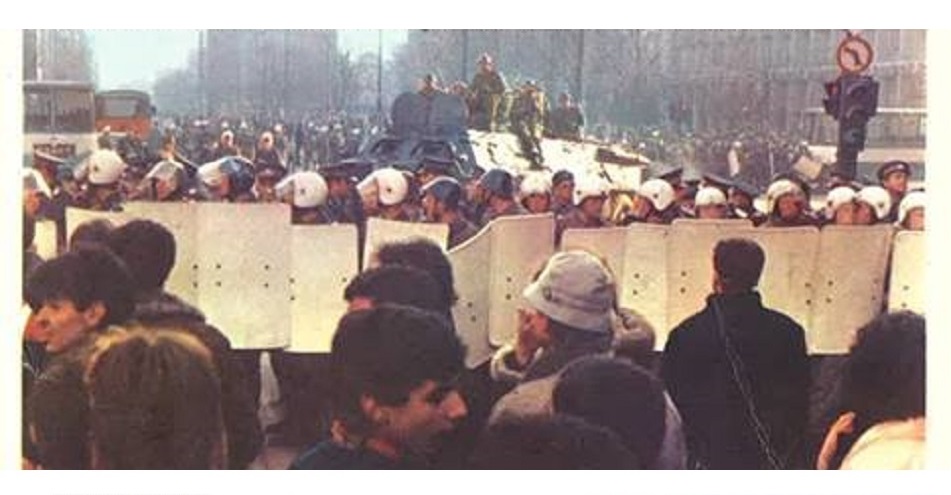
 December 3rd, 2010
December 3rd, 2010  VR
VR 
 Posted in
Posted in  Tags:
Tags: 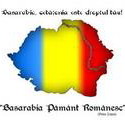






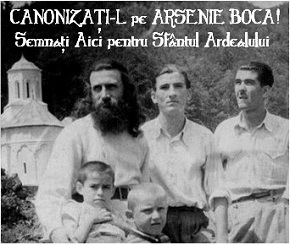


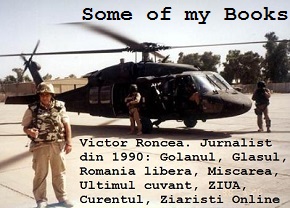
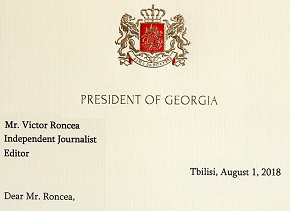

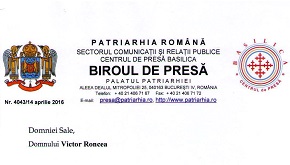

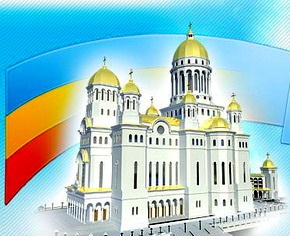

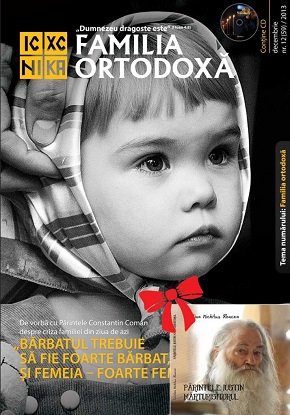




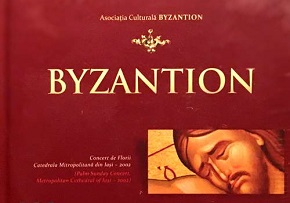







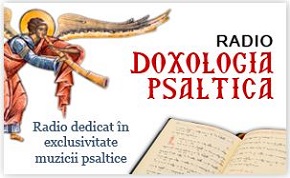





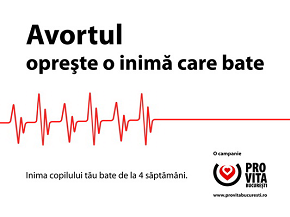

Thanks for sharing your thoughts about cia. Regards